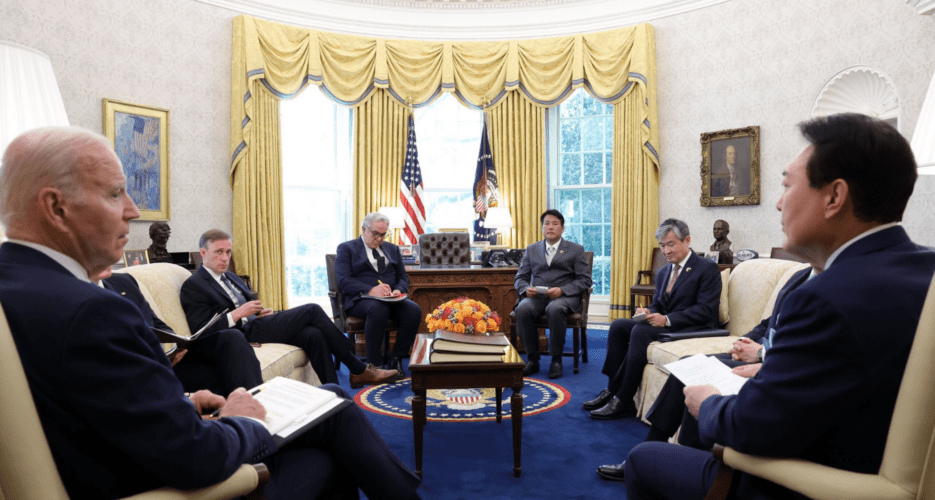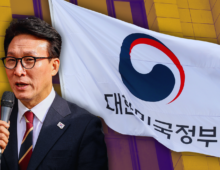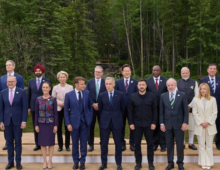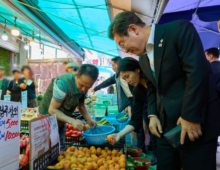In rare show of unity, both left and right fault president for allegedly conceding right to go nuclear in deal with US
South Korea is a heavily polarized society in which progressives and conservatives often struggle to reach a consensus on even the most trivial matters.
But domestic media’s portrayal of President Yoon Suk-yeol’s recent state visit to the U.S. offers a rare instance of agreement, with both ideological camps critiquing the president for reasons that, at times, overlap.
South Korea is a heavily polarized society in which progressives and conservatives often struggle to reach a consensus on even the most trivial matters.
But domestic media’s portrayal of President Yoon Suk-yeol’s recent state visit to the U.S. offers a rare instance of agreement, with both ideological camps critiquing the president for reasons that, at times, overlap.
Get your
KoreaPro
subscription today!
Unlock article access by becoming a KOREA PRO member today!
Unlock your access
to all our features.
Standard Annual plan includes:
-
Receive full archive access, full suite of newsletter products
-
Month in Review via email and the KOREA PRO website
-
Exclusive invites and priority access to member events
-
One year of access to NK News and NK News podcast
There are three plans available:
Lite, Standard and
Premium.
Explore which would be
the best one for you.
Explore membership options
© Korea Risk Group. All rights reserved.
No part of this content may be reproduced, distributed, or used for
commercial purposes without prior written permission from Korea Risk
Group.












